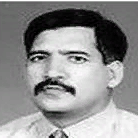
Younus Javed
Work place: Department of Computer Engineering, College of Electrical & Mechanical Engineering, National University of Sciences & Technology (NUST), Islamabad, Pakistan
E-mail: myjaved@ceme.nust.edu.pk
Website:
Research Interests: Information Systems, Parallel Computing, Computer Architecture and Organization, Computer Vision, Computer systems and computational processes
Biography
Dr. M. Younus is Professor at College of Electrical & Mechanical Engineering, National University of Sciences & Technology. He received his PhD degree from University of Dundee, UK. His expertise focus on Algorithms, Adaptive and Predictive Modelling, Digital Image Processing, Operating Systems and Encoding /Decoding Systems, Parallel Processing.
Author Articles
Vision-based Classification of Pakistani Sign Language
By Sumaira Kausar Younus Javed Samabia Tehsin Muhammad Riaz
DOI: https://doi.org/10.5815/ijigsp.2016.02.02, Pub. Date: 8 Feb. 2016
Automated sign language recognition is one of the important areas of computer vision today, because of its applicability in vast fields of life. This paper presents automated recognition of signs taken from Pakistani Sign Language (PSL). The paper presents empirical analysis of two statistical and one transformation based shape descriptors for the recognition of PSL. A purely vision based, efficient, signer independent, multi-aspect invariant method is proposed for the recognition of 44 signs of PSL. The method has proved its worth by utilizing a very small shape descriptor and giving promising results for a reasonable size of sign dictionary. The proposed methodology achieved an accuracy of 92%.
[...] Read more.Efficient Image Steganogrphic Algorithms Utilizing Transforms: Wavelet and Contourlet with Blowfish Encryption
DOI: https://doi.org/10.5815/ ijcnis.2015.02.02, Pub. Date: 8 Jan. 2015
Steganography is a means to hide the existence of information exchange. Using this technique the sender embeds the secret information in some other media. This is done by replacing useless data in ordinary computer files with some other secret information. The secret information could be simple text, encoded text or images. The media used as the embedding plane could be an image, audio, video or text files. Using steganography ensures that no one apart from the sender and the receiver knows about the existence of the message. In this paper, a steganography method based on transforms used i.e. Wavelet and Contourlet. Devised algorithm was used against each transform. Blowfish Encryption method is also embedded to double the security impact. The major advantage of applying transforms is that the image quality is not degraded even if the number of embedded characters is increased. The proposed system operates well in most of the test cases. The average payload capacity is also considerably high.
[...] Read more.Other Articles
Subscribe to receive issue release notifications and newsletters from MECS Press journals